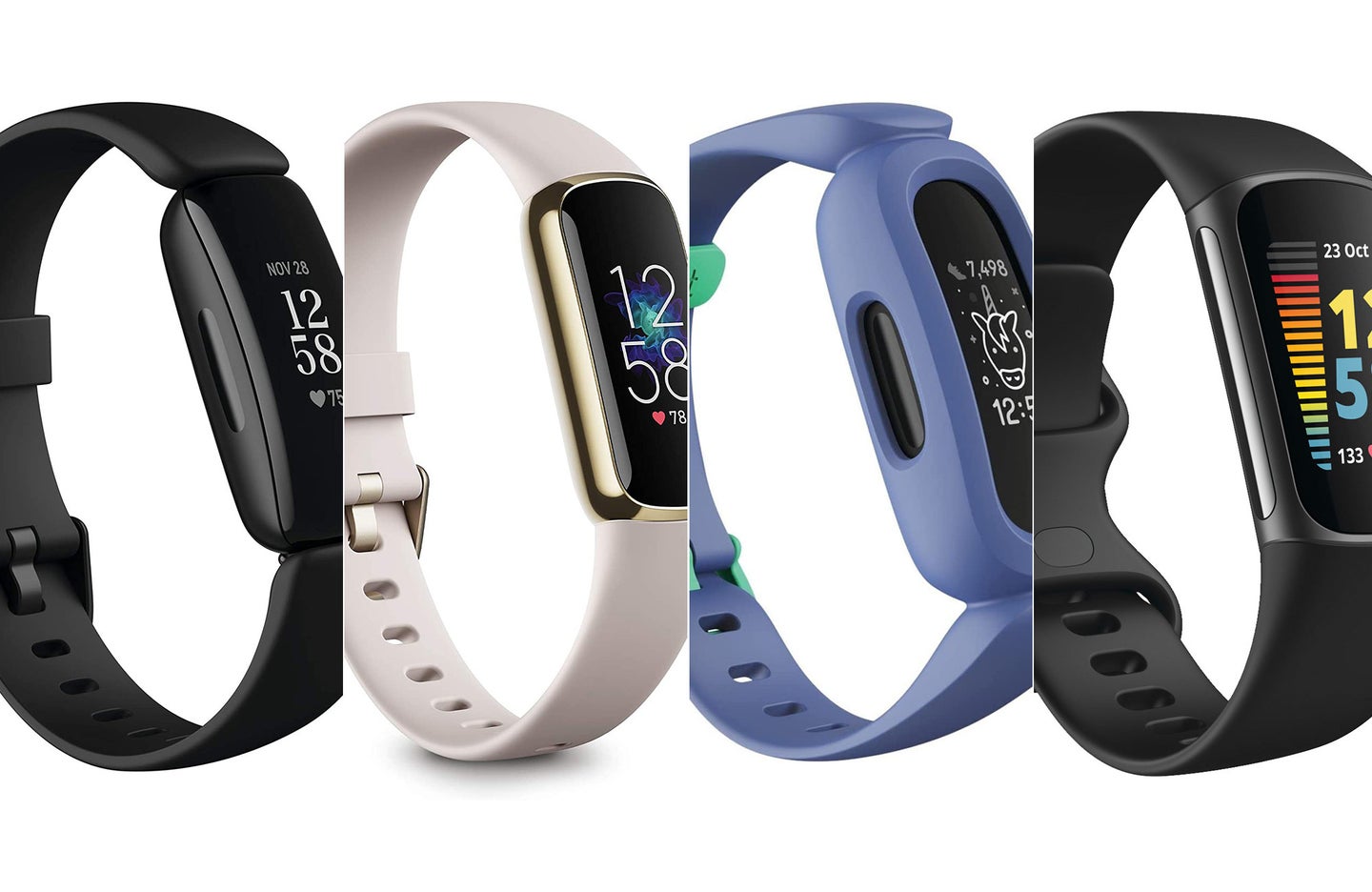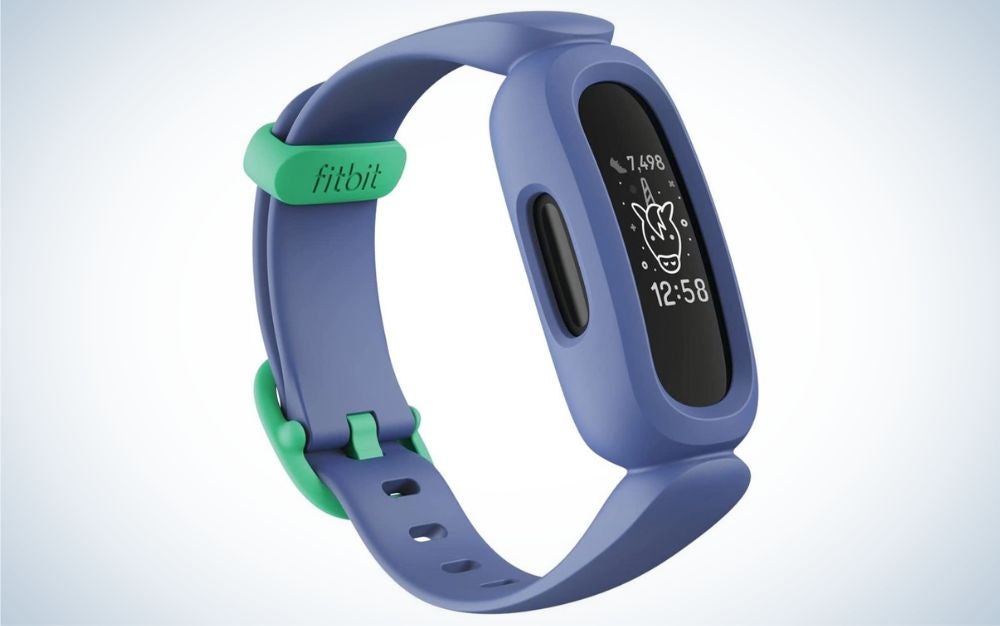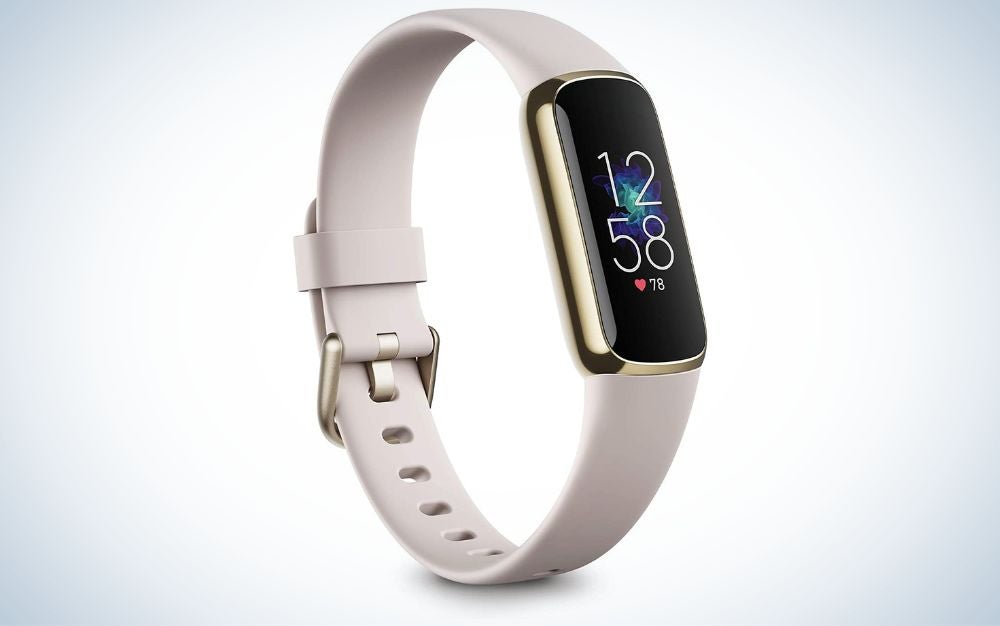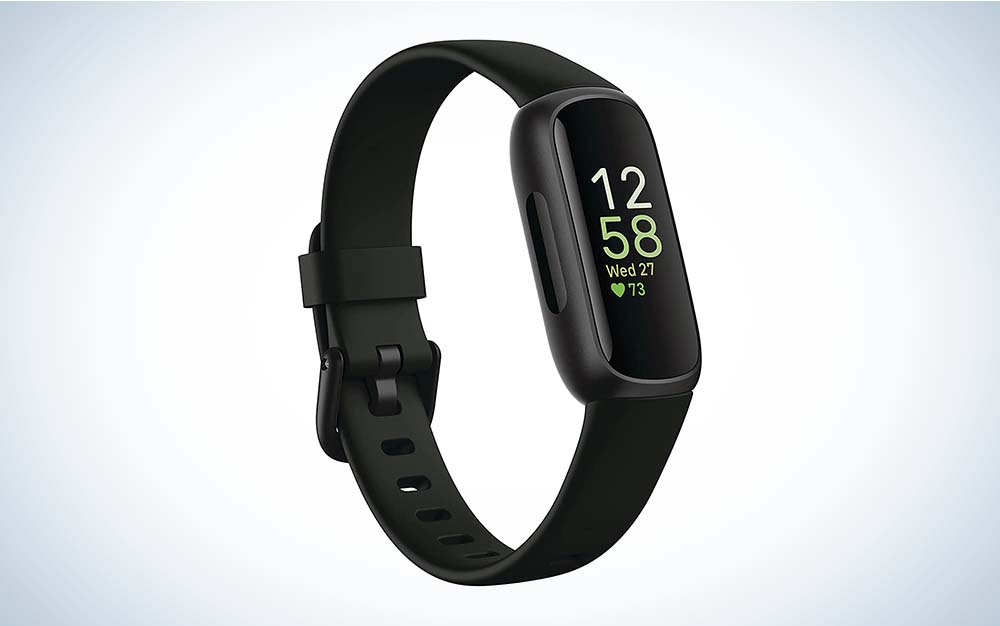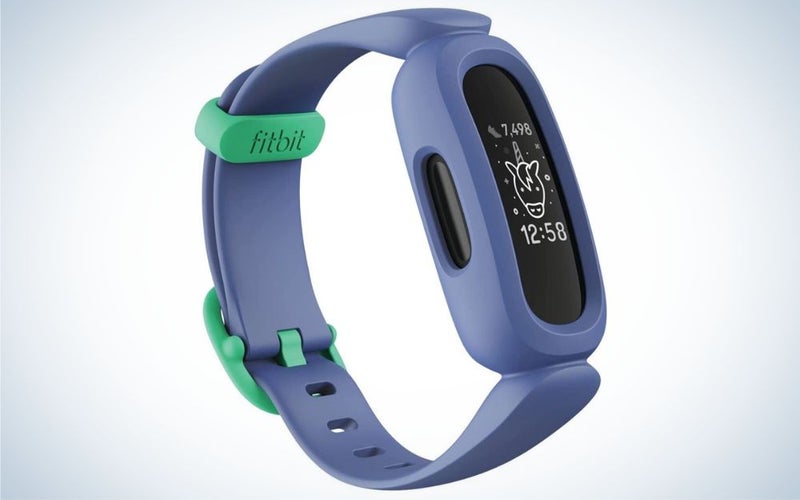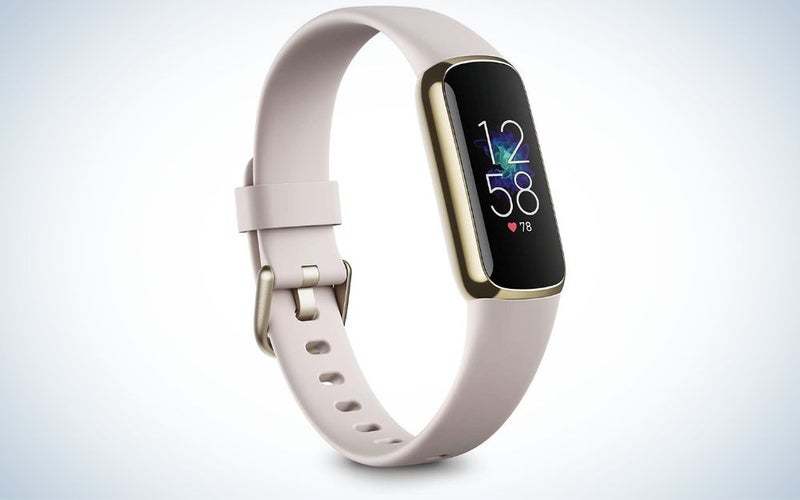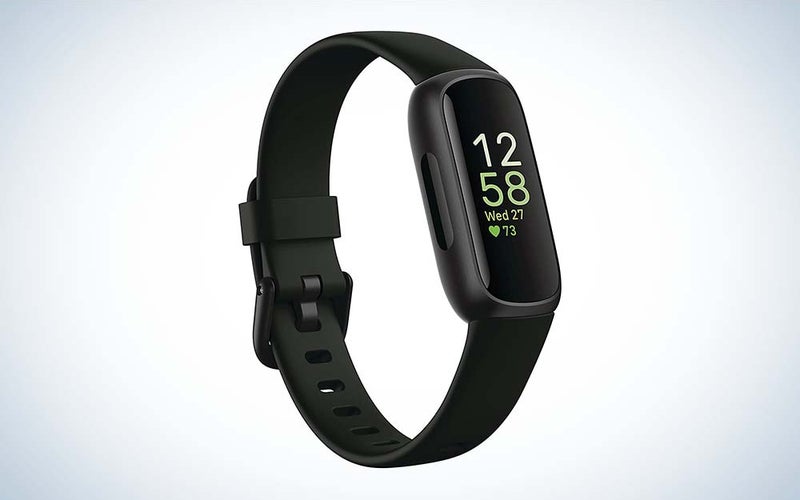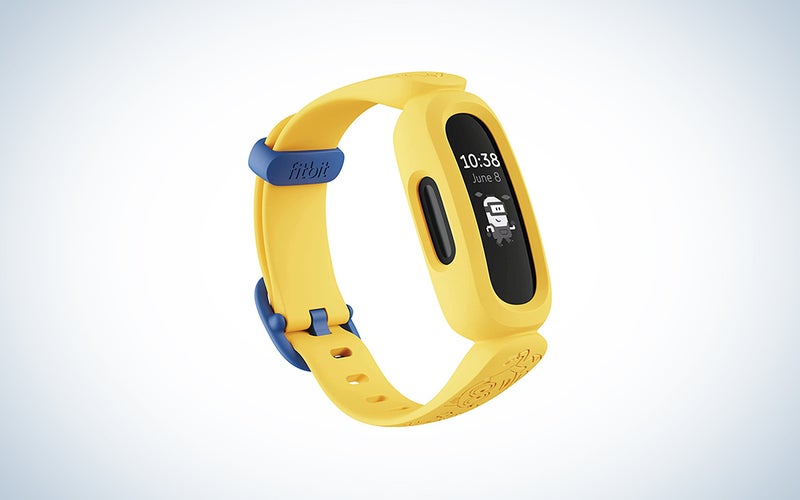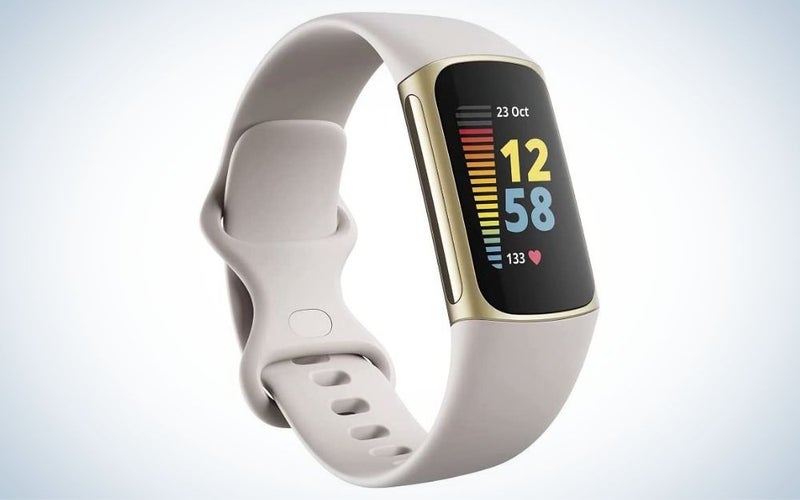We may earn revenue from the products available on this page and participate in affiliate programs. Learn more ›
Fitbits can provide a great way to encourage kids to develop healthy habits and active lifestyles from an early age. A Fitbit, one of the leading brands of activity trackers, can motivate your child to get the recommended daily amount of exercise. According to the Centers for Disease Control, kids from ages 6 to 17 need about 60 minutes of physical movement per day to stay healthy. Fitbits can easily help track those minutes to ensure adequate movement. Fitbits don’t just monitor exercise, though. They can help with stress levels, monitor heart rate, store music, receive call/text notifications, and they can even track sleep. The Sleep Foundation says that sleep not only helps your child with energy levels, but a slew of other important developmental areas such as memory, focus, mood, learning, motor skill development, and overall happiness. A Fitbit’s sleep tracker can help ensure your child is getting the recommended 9-11 hours needed. We have compiled this list of the best Fitbits for kids.
- Best overall: Ace 3
- Best for style: Fitbit Luxe
- Best for teens: Inspire 3
- Best for young kids: Ace 3: Minions Special Edition
- Best with GPS: Fitbit Charge 5
How we chose the best Fitbits for kids
While some people use “Fitbit” as shorthand to represent every type of fitness tracker, we’ve kept this list within the specific brand itself. While there are other fitness tracking options out there, Fitbit offers a complete enough lineup that it can appeal to a variety of kids.
We started by comparing the entire Fitbit lineup, many of which we have actually reviewed. We focused on models that offer kid-friendly features, reasonable pricing, and designs that will appeal to a younger crowd. While there’s one model specifically made for kids, other models can appeal to slightly older children and teens who have different needs.
The best Fitbits for kids: Reviews & Recommendations
Now that we’ve outlined some of the most relevant features, here are our specific picks for the best Fitbits for kids. While we have broken them down into categories, there’s always overlap
Best overall: Ace 3
Fitbit
Why it made the cut: With a touchscreen display, eight days of battery life, impressive memory, and Parent and Kid View, this is the obvious choice for most young ones.
Specs
- Ages: 6+
- Battery Life: Up to 8 days
- Charge Time: 2 hours
Pros
- 8 days of battery life
- Bedtime and alarms
- Parent and Kid View
- Water-resistant
- Interchangeable bands
Cons
- Pricey
- No heart rate monitoring
The only Fitbit specifically made for children, the Ace 3 comes with tons of great features relevant to young ones. With 8 days of battery life, a touchscreen display, bedtime alerts, reminders to move, a step counter, and gentle alarms to wake your kids up, this Fitbit comes fully stocked.
One of the most kid-friendly aspects of the Ace 3 is the fun virtual badges, animated clock faces, and personalized avatars that add a healthy sense of competition and play to their activity. Your kids can also personalize their Fitbit with interchangeable accessories like Minions bands, for an added fee.
There’s both parent and kid view, and it’s also water-resistant up to 50 meters, so they can even wear it while swimming. It’s by no means cheap, but with all the bells and whistles, we think it’s worth the investment.
Best for style: Fitbit Luxe
Fitbit
Why it made the cut: Fashion-forward and stylish, the Fitbit Luxe features a menstrual health tracker, several stress management tools, and sleep aids useful for teens.
Specs
- Ages: 13+
- Battery Life: Up to 5 days
- Charge Time: 2 hours
Pros
- Call/text notifications
- Connects to phone GPS to track pace and distance
- Menstrual health tracker
- Stylish design
- Stress management features
Cons
- Pricey
- Website says the battery lasts 5 days, but quicker depending on use
Swimproof, slim, and fashion-forward, the Fitbit Luxe is the perfect tracker for teens who want to be more hands (or wrists?) on with their health. It not only takes care of all-day tracking, but also connects to a phone’s GPS to track pace and distance and allows wearers to stay connected with friends via call and text notifications.
If your teenage girl has periods, she can track ovulation, record period symptoms, and log flow with the built-in menstrual health tracker, which can help her feel informed about her menstrual health. It also has several stress-management features, such as guided breathing, to help her with her mood and stress levels. We want to note: teenage girls have enough societal pressure, and we love that Fitbit’s team is committed to helping teenage girls stay healthy and happy without focusing on striving for “perfection.”
It’s not the cheapest option, but the Special Edition gorjana Soft Gold Stainless Steel Parker Link Bracelet doubles as a bracelet that goes with every outfit, which would make for the perfect birthday or holiday gift!
Best for teens: Inspire 3
Fitbit
Why it made the cut: Easy to use and accessible for teens with a one-year premium trial included, this is a great starter tracker for young adults looking to track calories, heart rate, steps, and more at home and at school.
Specs
- Water resistance: Up to 50 meters
- Battery Life: Up to 10 days
- Charge Time: 2 hours
Pros
- Easy to use & accessible
- Affordable
- Up to 10 days of battery
- Six-month Fitbit Premium membership included
- Competitive games
Cons
- Screen may be hard to read in the sunlight
- Band wears after some time
The Inspire 3 is Fitbit’s most accessible and easy-to-use fitness tracker, which makes it a solid option for teens.
New Fitbit users get a six-month free trial of Fitbit Premium so they can have access to guided meditations, exercises, and accountability to make their fitness and health journey even easier.
With its sleek design and simple interface, Inspire 3 is a great starter Fitbit for tracking steps, heart rate, distance, calories, food logging, menstrual health, sleep, and more. The battery lasts up to 10 days and there are even fun games in the app, like Get Fit Bingo, for more competitive-minded teens.
Best for young kids: Ace 3: Minions Special Edition
Fitbit
Why it made the cut: Meant for kids ages 6 and up, this Minions-themed fitness tracker offers parental controls and motivating challenges that make any activity feel like a game.
Specs
- Ages: 6+
- Battery Life: Up to 8 days
- Charge Time: 2 hours
Pros
- Meant for kids 6+
- Swimproof
- 8 days of battery
- Relatable cartoon watch face
- Parental controls
Cons
- No heart rate sensor
Nothing motivates a young kid to get moving more than the mischievous Minions, whose boundless energy and curiosity cannot be contained. In fact, this Fitbit contains some fan-favorite phrases, like “Feed me!” This special edition of the Ace 3 provides simplified sleep tracking, friendly reminders to keep moving, call alerts, and bedtime reminders and alarms. It’s also water-resistant to 50 meters, and the Minions-yellow embossed silicon band is meant for kids’ little wrists—both in size and style.
There’s both a kid view and a parent view, so you can keep track of your child’s activity. This is a simple tracker without all the bells and whistles, which is a great option if you want to get a starter tracker. And, family challenges allow them to try and beat their sibling’s step count.
While the virtual badges and avatars provide some external motivation for kids to get active, the incentives won’t appeal to every kid. You should also make sure the kids know to approach the badges in a healthy way.
Best with GPS: Fitbit Charge 5
Fitbit
Why it made the cut: This Fitbit with GPS can track over 20 workouts including swimming and has a built-in GPS system so your kids can leave their phones at home during workouts without feeling unsafe.
Specs
- Ages: 13+
- Battery Life: Up to 7 days (Or 5 hours with GPS use)
- Charge Time: 2 hours
Pros
- Comfortable to wear 24/7
- Built-in GPS
- Bigger touchscreen display
- Heart rate tracker
- Easier to read in bright light
Cons
- Can’t take calls
- The lack of buttons can take getting used to
- No music playback control
Fitbit’s most advanced fitness and health tracker yet, this Fitbit with GPS comes with tons of elite features in a slim and lightweight design. It features an on-wrist ECG app, step tracker, calorie tracker, hourly activity, swim-tracking, and sleep monitoring. It also allows your kids to set goals and it buzzes when they hit certain heart rate zones. Plus, the main draw: built-in GPS for tracking routes and workouts.
The built-in GPS is great if your kids want to go without their phones without feeling unsafe. But you can also connect GPS from your phone to save battery if you’re running low.
While some may love the touchscreen approach, others may find the button-less design needs some getting used to. There’s also no music playback, and no third-party apps are supported.
What to consider when shopping for the best Fitbits for kids
A Fitbit is a great way to give a scientific gift, especially to younger kids in your household. There’s no better time to talk about the cardiovascular system than when they’re taking their heartbeat. Here’s what else you should know before hitting “add to cart.”
A quick note on the term “Fitbit”
For some people, the term “Fitbit” has taken on a more general meaning—it’s a catch-all that references any fitness tracker. It’s like how we often call plastic storage bags Ziploc bags or garbage receptacles Dumpsters. In reality, Fitbit is a specific brand that’s owned by Alphabet, Google’s parent company. We’re keeping this list almost entirely specific to that brand because the company makes a lot of excellent devices, but there are others out there like the Amazfit Band that would make a great option for kids.
Features
While Fitbit products have commonalities, some trackers come with unique features. It’s important to identify what you want to get out of your Fitbit. Do you want a hybrid tracker and smartwatch that can sync with a smartphone and offer more complex functionality? Or do you just want fitness tracking? Do you need GPS built in? Stress management tools? Take the company’s Fitbit quiz to help you make your decision.
Budget
How much are you looking to spend? While some budget Fitbits are around $80, they can go all the way up to several hundred, depending on features and frills like GPS tracking and smartwatch capabilities. The kid-specific Ace is one of Fitbit’s cheaper models, which makes sense since kids are prone to breaking and losing gadgets on the regular. Buying a kid a $250 smartwatch can be a real gamble.
Style
Your Fitbit’s style should reflect your child’s age and development. Some Fitbits, like the Ace 3, are meant for small children around 6 years, and others are meant for older teens like the Inspire 3 or Luxe. A kid won’t wear something if they hate the way it looks.
FAQs
Q: How much does a Fitbit for kids cost?
The only Fitbit specifically designed for kids, the Ace 3, costs $79.95. Anything fancier than that and you’re going to pay a premium. There are some other brands that offer cheaper fitness trackers.
Q: Can an 11-year-old have a Fitbit account?
Whether or not your 11-year-old (or any minor) can have their own Fitbit account depends on the privacy laws in your individual country. Mostly, parents and legal guardians can create a family account to monitor their kids’ accounts.
Q: Which Fitbit is best for a child?
Which Fitbit is best for a child depends on the needs and preferences of your unique child! If GPS is important, go with that model, or if price point is most important, you’ll want a cheaper option. It’s all about what works for your individual needs. If you’re looking for a starter model, though, we’d recommend the Ace 3.
Final thoughts on the best Fitbits for kids
Fitbits are a great tool to make healthy living a convenient part of your child’s daily life. From fun incentives, cool features, and built-in tracking, it’s never been easier to teach your child how to have agency over their health. Hopefully, this article helps you narrow down the best Fitbits for kids so you can find the one that is right for your child.
